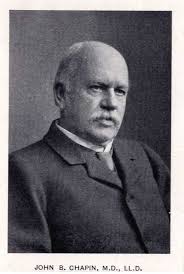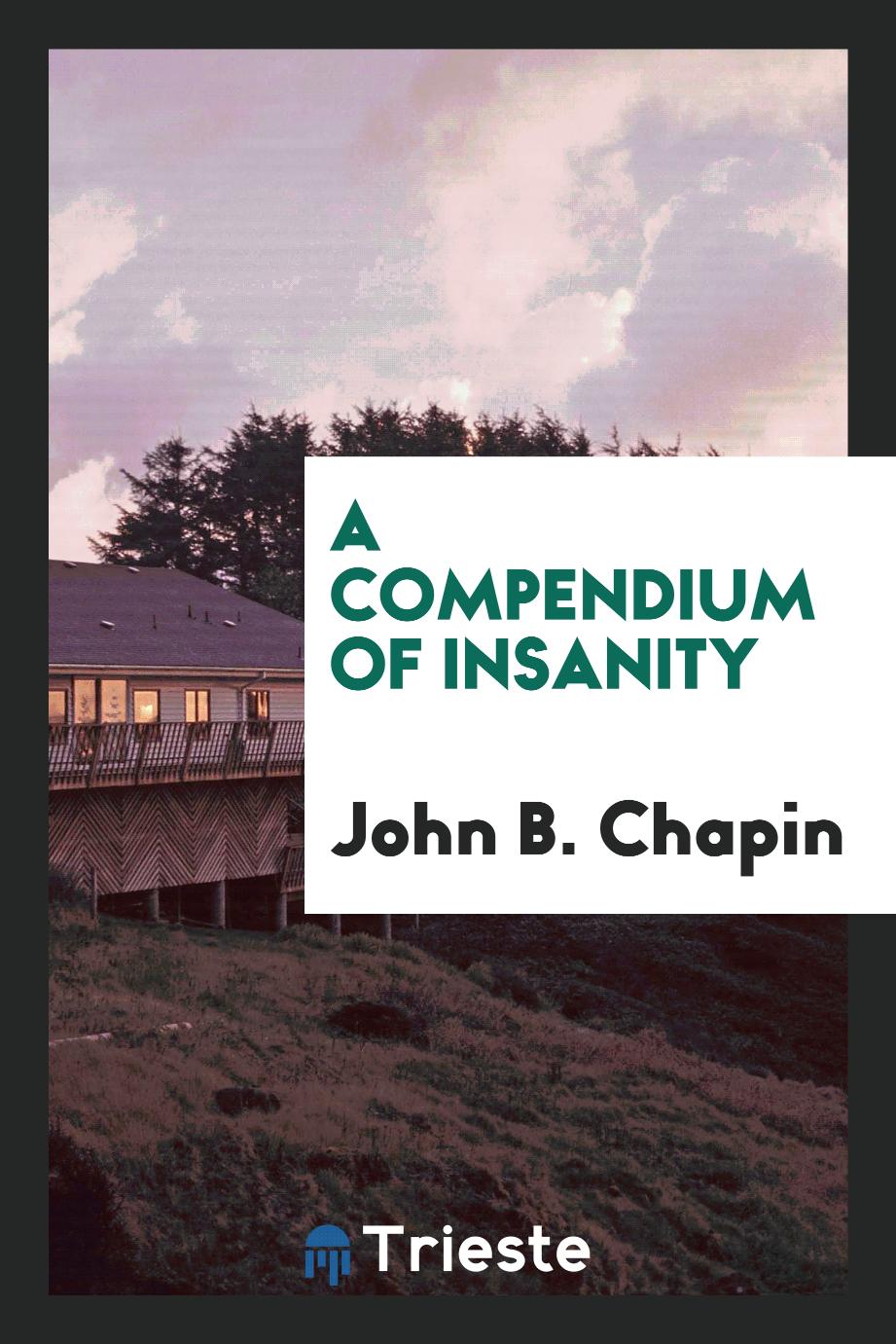
John B. Chapin
John B. Chapin (John Basset Chapin) (1829-1918) was an American physician and mental hospital administrator. He was an advocate for the removal of mentally ill patients from the almshouses in New York State to a hospital setting and helped to pass a state law that provided hospital care for the patients. Chapin’s father was interested in the care of the blind, and he moved the family from New York to Pennsylvania, and then to Columbus, Ohio, where his father became director of the Institution for the Blind. In 1849, Chapin entered the Western Reserve College (Ohio). After a year, he transferred to Williams College (Massachusetts) and received the A.B. degree in 1850. Chapin began his medical career under Dr. John Swett, an attending physician at New York Hospital. (Chapin’s maternal great grandfather had been a hospital governor and a charter member). In 1852, Chapin was a member of the medical staff and attended lectures at Jefferson Medical College in Philadelphia. In 1853, he received his medical degree. He was named house physician at a New York Hospital in 1854. On completion of his training at the New York Hospital, he joined the medical staff of the State Lunatic Hospital in Utica, New York, then the only public mental hospital in the state. He worked there for four years. From 1858 to 1860, he organized and managed an institution for the blind in St. Louis, Missouri. He returned to Canandaigua, New York to practice at Brigham Hall, a private mental hospital. Chapin was appointed by the New York State Governor to a committee to select a site for the new facility. Chapin was responsible for planning the construction and chose to create a segregated facility with access to farm facilities for patient occupational therapy. The Legislature appointed a Board of Trustees which elected Chapin as its first superintendent. He remained in the post until 1884. The new hospital led in the care of chronic mentally ill people. In 1884, following the death of Dr. Thomas Kirkbridge, the first physician-in-Chief of the Department of the Insane of the Pennsylvania Hospital, Chapin was named the new chief physician and remained there for 23 years. He authorized the building of new facilities to accommodate a growing patient population; the opening of a dispensary for treating incipient cases; and the instituting of new practices to improve patient care. He retired in 1911 and spent his last years at his home in Canandaigua, New York. Chapin died on January 17, 1918 at his home in Canandaigua, New York, surrounded by his children.
